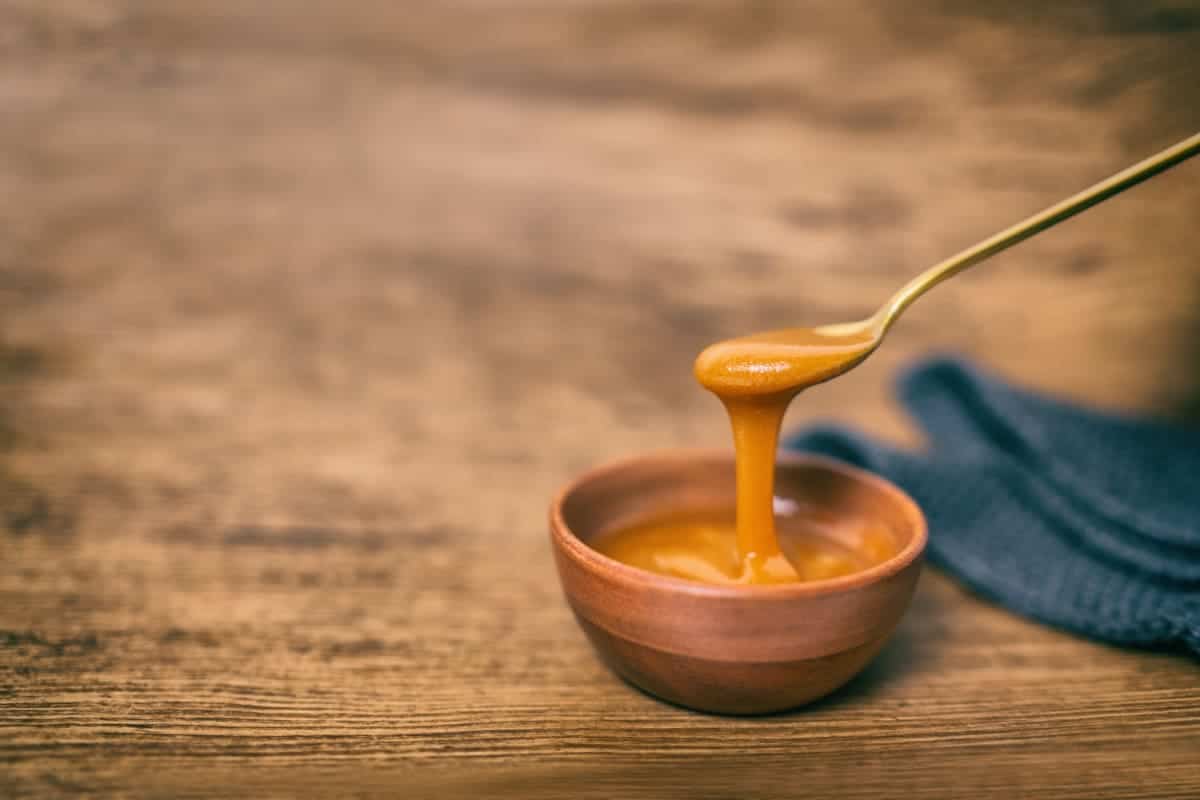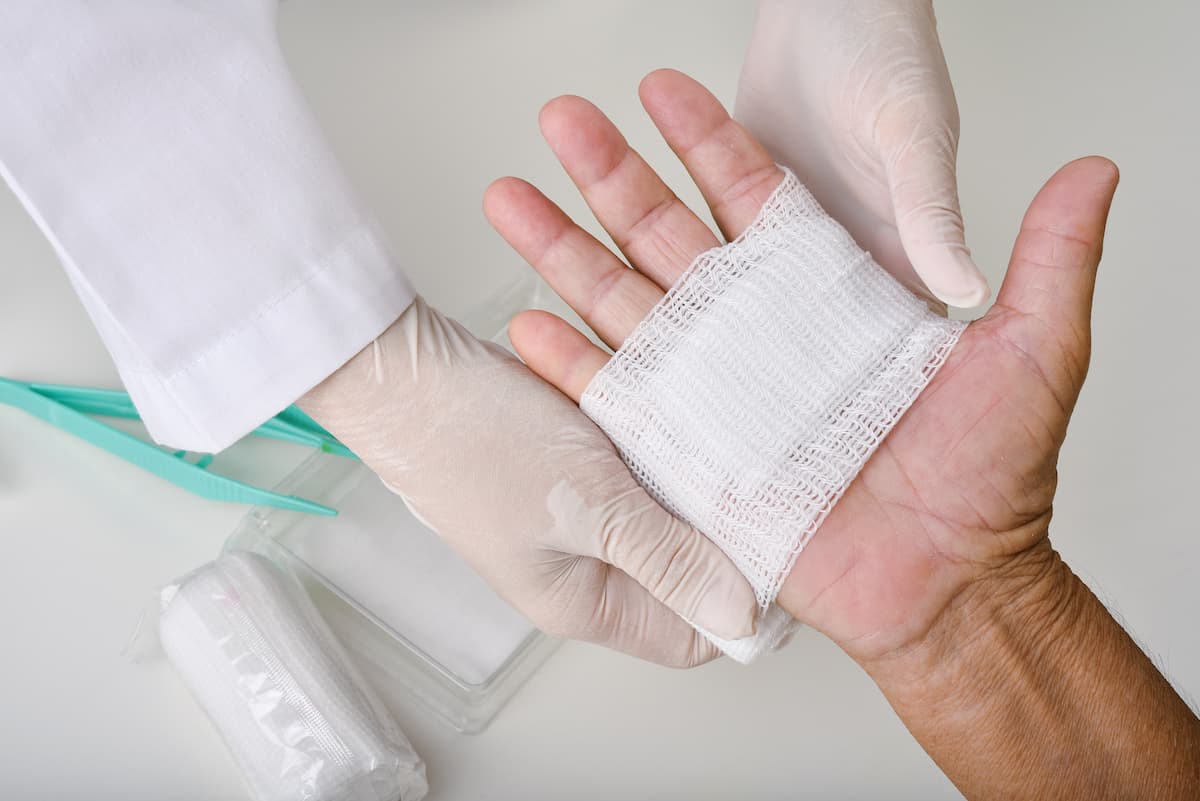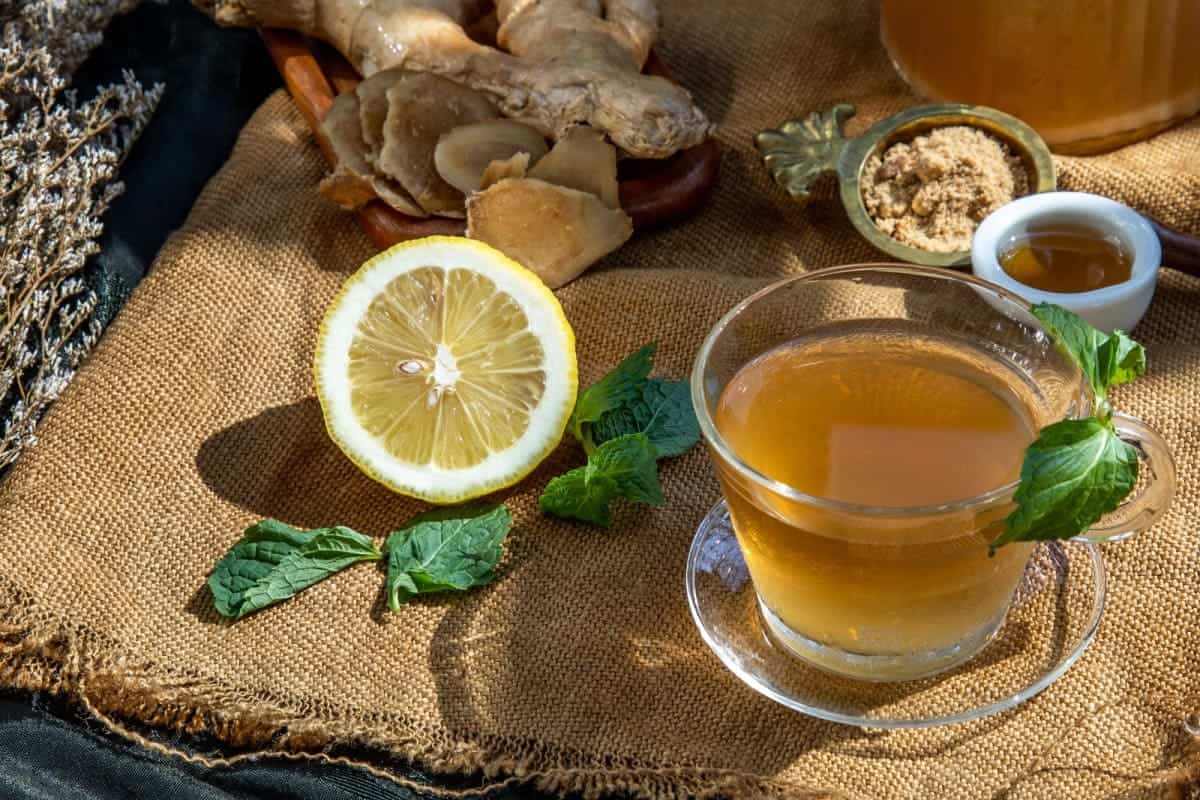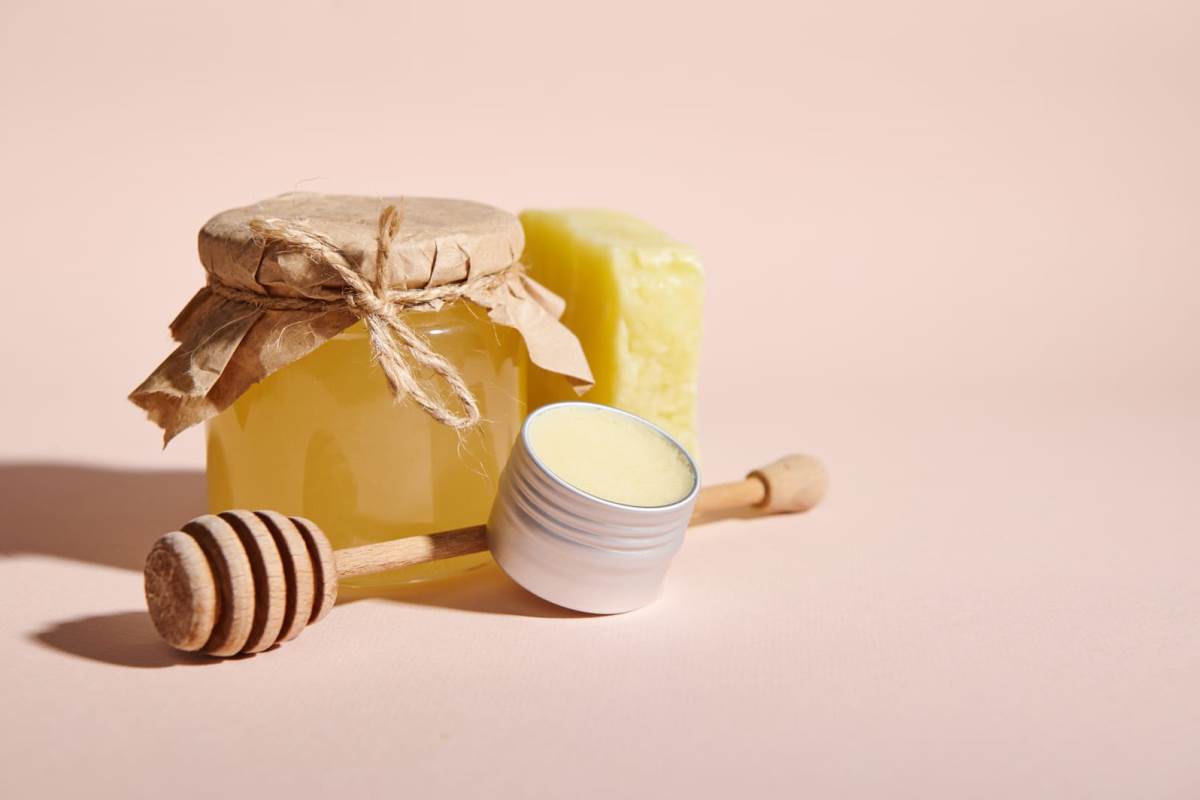
The scientific evidence for manuka honey benefits has gradually increased over the last three-plus decades. As more and more research comes to fruition, proof of the health benefits of manuka honey continues to rise.
Based on this evidence, we've reviewed the top nine health claims of manuka honey. Plus, we'll explain all the different ways you can incorporate manuka honey into your lifestyle for the best results. Btw if you are looking to purchase some manuka honey, don't miss our best manuka honey article.
Jump to:
- What is Manuka Honey?
- 1. Enhance Wound Healing Properties
- 2. Treat Viral Infections and Seasonal Allergies
- 3. Vitamin Booster
- 4. Aid with Digestive System and Gut Health Issues
- 5. Improves Oral Health
- 6. Helps Heal Ulcers
- 7. Fights Antibacterial-Resistant Infections
- 8. Treats Skin Disorders and Beauty Treatment
- 9. Manage Cystic Fibrosis
- How to Use Manuka Honey
- Is it Safe to Eat Manuka Honey Every Day?
- Is it Safe to Use Manuka Honey on Your Skin Every Day?
- How to Buy Manuka Honey
- Watch Out For Fake Manuka
- Final Thoughts on Manuka Honey Benefits
What is Manuka Honey?
First, let's quickly review what manuka honey is and why it's so esteemed.
Manuka honey began when European honey bees were introduced to New Zealand in 1839. These honey bees harvested the nectar from manuka flowers producing a rare monofloral honey.
The bees have a very narrow window of opportunity to harvest and store this highly coveted honey that can only be obtained from the manuka bush native to New Zealand and Australia.
The UMF Honey Association in New Zealand utilizes a grading system known as the “unique manuka factor,” which is the gold standard for the best quality of manuka honey.
UMF measures the amount of non-peroxide activity (NPA), DHA, and methylglyoxal (MGO) levels to grade the potency and efficacy of any batch of honey harvested in New Zealand.
Manuka honey is prized for its non-peroxide antibacterial properties from its most active ingredient- methylglyoxal.
1. Enhance Wound Healing Properties

One of the most astounding health benefits of manuka honey is its ability to treat wounds. There are many laboratory experiments and clinical trials that highlight the efficacy of using manuka honey as a topical ointment, particularly to treat burns.
Its potent antibacterial properties are highly prized for fighting stubborn wound infections so much so that it was approved for wound treatment by the FDA in 2007.
Evidence shows manuka honey, particularly medical grade manuka honey, exhibits many impressive health benefits:
- anti exudative
- anti-infectious
- anti-inflammatory
- antioxidant
- wound debriding
- wound healing
It's noted that the hydrogen peroxide naturally produced by most honey, including manuka honey, accelerates the healing process when applied to wounds.
Medical-grade manuka honey is shown to reduce inflammation, hypertrophic scarring, and enhanced intrinsic antioxidant properties.
Applying manuka honey to burns and wounds also creates a moist environment and physical barrier. Because of its high viscosity, it promotes faster healing and regrowth of epithelial cells.
Lastly, genuine manuka honey's high osmolarity not only supports tissue regeneration but can also contribute to the lifting and removal of waste and debris, which can eliminate the need for surgical debridement of severe wounds.
2. Treat Viral Infections and Seasonal Allergies

Honey has been used for centuries to treat numerous viral illnesses and allergies:
- Common Colds
- Flu
- Tonsillitis
- Pharyngitis
- Allergies
- Strep
- Upper respiratory infections
While there are many symptoms associated with the common cold, seasonal allergies, and other viral infections, the two most common symptoms are sore throat and cough.
Honey is well known for soothing both sore throats and coughs, but the evidence reveals that manuka honey is far superior to traditional honey.
Consuming manuka honey can relieve the pain and burning of a sore throat, in addition to reducing symptoms of cough.
Manuka honey's antibacterial properties, antioxidants, and anti-inflammatory properties show faster relief of symptoms.
Manuka honey contains glucose oxidase, which produces hydrogen peroxide. Studies show the antimicrobial activity of honey's hydrogen peroxide reduces symptoms of pain, fever, and oropharyngeal congestion rather quickly.
Additionally, since honey typically has no side effects or resistance to intake, it is considered a safe remedy for symptoms of cold, flu, and upper respiratory infections.
3. Vitamin Booster

Another health benefit of manuka honey is the number of vitamins, enzymes, and amino acids it contains:
- Calcium
- Potassium
- Zinc
- Vitamin B complex
- Vitamin C
All of which boost your immune system.
Eating manuka honey gives you the benefits of B complex vitamins that are filled with antioxidants that help convert nutrients into energy, helping you feel better and live a fuller life.
The aminos in manuka are useful for helping the body grow properly. These acids help break down food, repair tissue, and perform other biological functions necessary for life.
Manuka honey also contains an abundance of enzymes that help take the burden off of the gastrointestinal tract and aid the body in digestion.
Electrolytes help keep the body hydrated and keep nerves and muscles functioning properly. They are also useful in keeping the blood pH balanced and maintaining proper blood pressure.
Manuka honey is also a good source of iron, which is responsible for transporting oxygen and carbon dioxide around the body.
4. Aid with Digestive System and Gut Health Issues

Another one of the benefits of manuka honey is its impact on your digestive health. Evidence reveals manuka honey has been successful in treating conditions like colitis, gastritis, and even gastric ulcers.
Manuka honey has been proven to kill helicobacter pylori and c diff, as well as promote the growth of probiotic bacteria.
Some studies have been done revealing manuka honey's usefulness in treating these other digestive complaints:
- Acid reflux
- Colitis
- Escherichia coli
- Gastric ulcers
- GERD
- Inflammatory bowel disease
- Salmonella enteritis
- Salmonella typhimurium
- Staphylococcus aureus
Another benefit is its ability to stimulate digestion. The high concentrations of methylglyoxal induce the modification of proteins, which influences enzyme activity.
5. Improves Oral Health

Manuka honey is known to attack and significantly inhibit the growth of harmful oral bacteria such as Porphyromonas gingivalis and A actinomycetemcomitans known to be associated with gum inflammation, periodontal disease, plaque formation, dental cavities, and tooth decay.
Attacking this harmful bacteria results in significantly reduced plaque and gingivitis.
It's also believed that manuka honey fights against Streptococcus mutans, which are responsible for oral cavities.
To successfully improve oral health, it's recommended that only a high medical grade honey be used.
6. Helps Heal Ulcers
Healing various types of ulcers is yet another one of the health benefits of manuka honey. Ulcers include a variety of severe sores that are slow to heal and continually return. Common types of ulcers include:
- Leg and foot ulcers
- Stomach ulcers
- Genital ulcers
- Mouth ulcers
Given manuka honey's ability to heal wounds, it's no wonder it does such an excellent job at healing ulcers also. We've already discussed the health benefits of manuka honey against harmful gut bacteria.
However, manuka is also well known for combatting a variety of ulcers. Diabetics in particular are prone to diabetic foot ulcers as a result of high glucose levels.
Studies show that applying manuka honey to these ulcers works particularly well at combatting the microorganisms involved because of its elevated antioxidant activity and ability to control inflammation.
Manuka honey is also useful for the treatment of mouth ulcers, which can be extremely irritating and painful. The antioxidant and antimicrobial properties of manuka honey accelerate the healing process and help soothe the painful effects.
Ingesting manuka honey also helps reduce symptoms of stomach pain associated with gastric ulcers.
7. Fights Antibacterial-Resistant Infections
Multidrug and antimicrobial-resistant microorganisms are extremely difficult to treat, are highly transmissible, and cause invasive diseases. Research shows medical-grade manuka honey as a promising treatment for some of these resistant strains:
- Escherichia coli
- Extended-spectrum β-lactamase-producing (ESBL) E. coli
- Methicillin-resistant Staphylococcus aureus (MRSA)
- Pseudomonas aeruginosa
- Staphylococcus aureus
- Vancomycin-resistant enterococci
One of the manuka honey benefits revealed in the study was that the drug-resistant status of the organisms did not impact the efficacy of the manuka honey at all. These multidrug-resistant organisms were often very susceptible to manuka honey treatment.
8. Treats Skin Disorders and Beauty Treatment

Manuka honey is commonly used to treat acne; however, it's also well-known to aid in the treatment of many other skin ailments:
- Dermatitis
- Eczema
- Rosacea
- Pityriasis
- Tinea
- Dandruff
- Dermatitis
- Psoriasis
In addition to treating inflammatory skin conditions, its antimicrobial properties are also highly coveted in the cosmetic industry for emollients, skin conditioners, facial creams, lip ointments, hydrating creams, shampoos, and conditioners.
9. Manage Cystic Fibrosis
Cystic fibrosis is a genetic disorder that significantly impacts the lungs, digestive system, and other organs due to an overproduction of mucous. More and more research is showing that manuka honey is beneficial in CF patients due to its ability to kill resistant bacteria.
In one study, using manuka honey successfully killed antimicrobial bacteria at a rate of 39%. When manuka honey was used in conjunction with antibiotics, this rate jumped to 90%.
It's also known that manuka honey destroys biofilms connected to bacterial persistence. Patients who have experienced Manuka honey irrigations for sinusitis report significant quality-of-life improvements and better endoscopic outcomes when compared to normal saline irrigations.
How to Use Manuka Honey
Now that you know the range of manuka honey benefits, the next step is to incorporate it into your lifestyle. There are a variety of different ways to use manuka honey, which largely depends on what ails you.
Use as a Sweetener
Manuka honey with a UMF of 0-5 can be used the same as traditional raw honey. Adding a teaspoon to coffee or tea as a sweetener is a perfectly acceptable way to consume manuka honey on a daily basis.
Using a little in your morning smoothie is also a great way to boost your vitamin intake.
Take caution, however. Heating honey too hot causes it to lose its medicinal benefits. For honey to maintain its nutritional value, it needs to remain below 98.6°F (37°C).
Use in Your Daily Eating Habits
There are a variety of ways to eat manuka honey and incorporate it into your cooking regimen.
Baking is certainly popular, and the taste is exquisite. But remember, heating honey can cause a loss of anti-bacterial properties.
Instead, try using it in your sauces and marinades. Add a little to your barbeque sauce for some honey barbecue wings or soy sauce to sweeten your teriyaki.
Mix some with cocoa powder to create a chocolate glaze for your donuts or bundt cakes. You can even drizzle it over fresh apple slices with some cinnamon and pecans.
Better yet, mix it with some of our homemade peanut butter and spread it over biscuits, toast, or pancakes.
Use as a Topical Ointment
Using manuka honey topically is one of the best ways to reap its antibacterial benefits. You can apply manuka to cuts, scrapes, open wounds, and burns to prevent bacterial infections and decrease inflammation.
Using manuka honey for wound treatment not only helps with healing but also tissue regeneration. Manuka honey with a UMF of 10-15 is acceptable for its anti-inflammatory properties, while a UMF of 18-25 is considered medical grade and provides the best wound healing properties.
Use as Part of Your Beauty Routine
Using manuka honey mixed with lemon juice and matcha powder is a great way to gently exfoliate your skin and brighten your complexion. Manuka honey is teeming with Vitamin E and works wonders to hydrate and nourish the skin.
Manuka can also be mixed with cinnamon and applied to the skin for 10–15 minutes to help reduce signs of inflammation.
Use as Part of Your Oral Hygiene
You can also incorporate manuka honey into your oral hygiene to fight against oral bacteria and tooth decay. Mix manuka honey with olive oil, castile soap, and essential oils like peppermint or spearmint to make your own homemade toothpaste.

Is it Safe to Eat Manuka Honey Every Day?
It is absolutely safe to consume manuka honey every day. However, as with regular honey, it has an abundance of sugar, so eating manuka honey in moderation is advised.
The recommended daily dose is a heaping teaspoon to boost your immune system and obtain its antibacterial effects.
However, if you have an allergy to bees or honey, then you may experience the same allergic reaction. Likewise, the same rules apply to children under one who shouldn't consume honey at all.
A simple teaspoon a day provides several benefits to your health:
- Boosts energy
- Aids and normalizes digestion
- Protects and maintains oral hygiene
- Strengthens immune system
Is it Safe to Use Manuka Honey on Your Skin Every Day?
A spoonful a day on your skin doubles the benefits. Using manuka as part of your health and beauty arsenal does wonders:
- Hydrates skin giving it a healthy glow
- Makes hair shiny
- Reduces skin irritation and acne
- Heals infected wounds
How to Buy Manuka Honey
Understanding the UMF factor is key to purchasing the right genuine manuka honey for you. Depending on how you plan to use your manuka honey will depend on which UMF grade you should buy.
Manuka honey with a UMF of 0-5 can be used interchangeably with local raw honey as an ordinary sweetener for direct consumption or cooking.
A UMF of 5-10 is considered a maintenance grade and most suitable as a daily supplement.
A unique manuka factor of 10-15 is well documented for fighting antibiotic-resistant bacteria and is considered a quality therapeutic grade.
Anything UMF 18+ is deemed a high medical-grade antibiotic and anti-inflammatory known to produce the highest quality antibacterial effects.
Watch Out For Fake Manuka
It's not uncommon for counterfeiters to try and cash in on the manuka craze. There are many adulterated versions of manuka on the market.
There are four key components of manuka labeling that guarantee the authenticity of your jar:
- UMF rating
- Identified as a product of New Zealand
- Monofloral identification
- MGO number
If your jar of manuka honey contains these four labeling identifications, then you've got the real deal.
Final Thoughts on Manuka Honey Benefits
Manuka honey has numerous benefits that can strengthen your immune system, improve your digestive system, and even heal wounds. Externally, it's also a great addition to your daily beauty routine to enhance both your skin and hair.
Try adding a little manuka with these recipes:
Easy Apple Cake with Salted Caramel Frosting


Leave a Reply